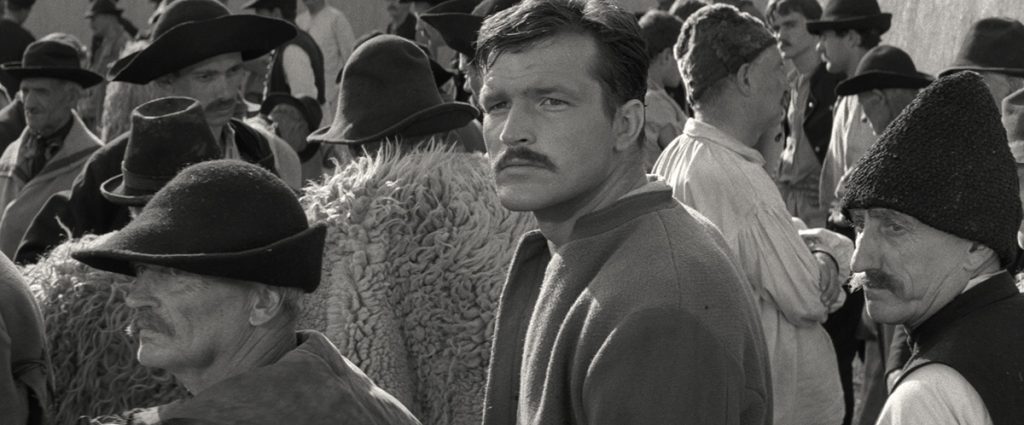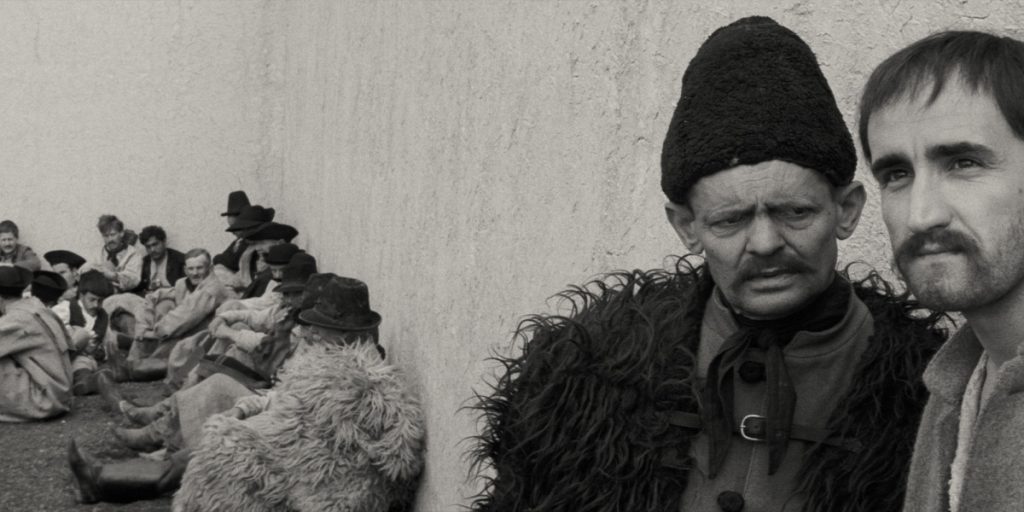The Round-Up, directed by Hungarian master Miklós Jancsó and playing at NYFF in a brilliant new restoration, is an evocative and bleak political parable.
Taking place in the barren, windswept plains of Hungary, Hungarian auteur Miklós Jancscó’s 1966 classic The Round-Up is brilliantly evocative. It is a film that revels in total isolation, with no backing score and only the mysterious sound of birds chirping from unseen trees to soundtrack the film’s events. Clearly, the biggest reference point for viewers unfamiliar with Jancsó’s work will be fellow Hungarian director, Bela Tarr, whose films are similarly bleak and desolate.
However, Jancsó is the more politically incisive and direct of the two, especially in his masterwork Red Psalm, but his anger is also evident in The Round-Up. A short prologue catches viewers unfamiliar with 19th century Hungarian history up to speed. It narrates the events leading up to and following the 1948 Hungarian revolution, detailing how the industrial revolution made the wealthier wealthy, but those toiling in factories and farms didn’t see any economic prosperity of their own. The actual narrative takes place in a prison, where the ruling monarchy is locking up those they suspect of waging armed conflict against them, in hopes of finding their real life leader, Sándor Rózsa. Rózsa has continued the spirit of the failed Hungarian Revolution by forming a band of outlaws. Much of The Round-Up’s plot and themes hinges on a familiarity with these historical events, and while the film provides some context, it can be easy for someone like myself (who knows little about Hungarian history) to become lost.
Jancsó and cinematographer Tamás Somló shoot the interior of the prison mostly in tracking close-up shots, creating a sense of claustrophobia and paranoia. Specifically, the camera follows János Gajdar as he tries to find someone in the prison who has killed more people than himself. If he succeeds, the warden has promised to set him free, but if he fails, he will be hanged. Jancsó’s tight framing puts us right next to Gajdar for the majority of the film. We are looked at with scrutiny and suspicion by his fellow prisoners and countrymen as he is, we feel his desperation and identify with his mission while still realizing that he is betraying his own people. On occasion, Jancsó pulls the camera back to create massively cinematic wide-shots that portray the immensity of the Hungarian country and to demonstrate just how isolated these political prisoners are.

While the form of The Round-Up is frequently extraordinary, the film itself is rather slow. There is an ominous, dirge-like quality to its imagery and pacing, but the characters are often too cold to latch on to. Thankfully, the final third adds an interesting twist to its narrative, and the ending is satisfyingly bleak and furious, reminding the audience to never put trust in oppressive authorities or institutions, that they will use any trick they can to subjugate you. The Round-Up may not be as staunchly political or as aesthetically dynamic as Red Psalm, it is still a worthwhile watch, if only to bask in its incredible compositions.
A new 4K restoration of The Round-Up will be screened at the New York Film Festival on Monday, September 27 at the Francesca Beale Theater, and on Thursday, September 30 at the Howard Gilman Theater.

